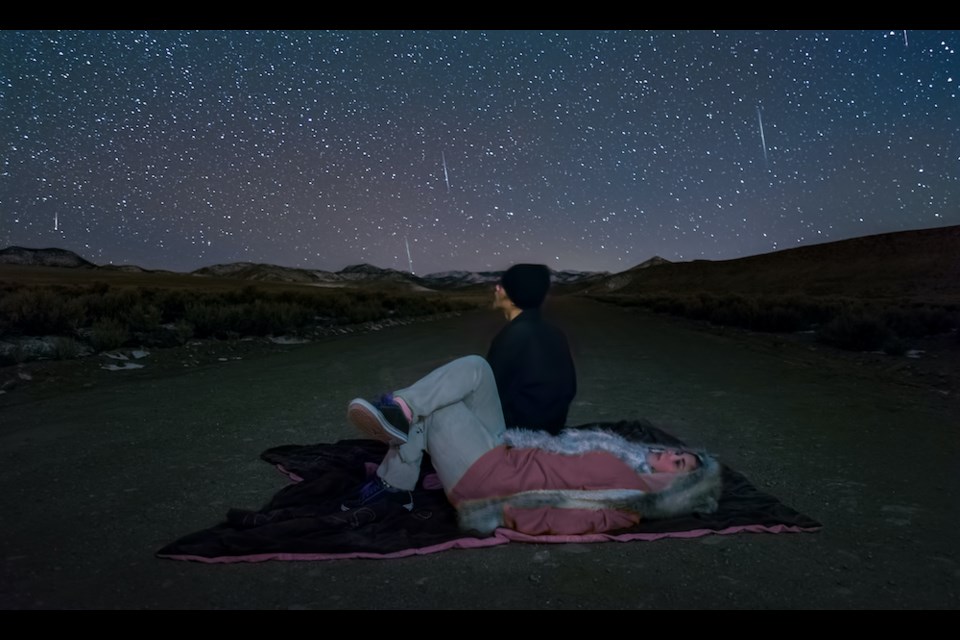Dazzling shooting stars with long tails could rain down across the Lower Mainland this spring.
As long as the Metro Â鶹´«Ã½Ó³»weather forecast includes mostly clear skies, the Lyrids could put on a couple of days of mesmerizing meteor shower viewing in the region in April.
The meteor shower takes place from April 15 to April 29, but peaks late on the night of April 21 and into the wee hours of April 22. The peak's is shorter than other showers, with no "weeks-long stretches of meteor-watching," according to EarthSky.
In Vancouver, skywatchers can catch the starting at 8 p.m. on April 21 and until about 6 a.m. on April 22 (see slide two). Up to 18 shooting stars per hour could be viewable during this period, according to dateandtime.com.
While locals won't see as many shooting stars as they would during the famously productive Perseid shower - which can see numbers as high as 100 meteors per hour - they may be able to see "fireballs."
The adds that the Lyrids usually lack persistent trains, but they can produce "fireballs." A fireball "is another term for a very bright meteor, generally brighter than magnitude -4, which is about the same magnitude of the planet Venus as seen in the morning or evening sky."
Lyrids Meteor shower viewing tips
While viewing will depend on weather conditions, there are other things you can do to ensure you have the best viewing experience.
To fully enjoy the spectacle, here are a few tips for meteor hunting:
- If possible, head away from city lights, which make it hard to see fainter meteors. To increase your chances of seeing shooting stars, set out in search of dark skies in the countryside. The Royal Astronomical Society of Canada provides some dark sky locations .
- Use the and check under the "seeing conditions before I head out to observe" section to find out how clear the display will be.
- If you need to use a flashlight, place a red filter over the bulb (a red balloon will do in a bind). White light is very blinding and may affect your night vision.
- Dress warmly and wear multiple layers. Bring blankets.
- Sit back and relax on a reclining chair or lie down on a blanket. Not only is it much more comfortable to observe the stars lying down, but you'll also see more that way.
- Pack a thermos of hot chocolate or coffee - it will come in handy if you start to drift off or get a little chilly.
- Be patient. It might take a while before you see your first shooting star. Don't be quick to give up.
Stay up-to-date with hyperlocal weather forecasts across 50 neighbourhoods in the Lower Mainland with Weatherhood.



